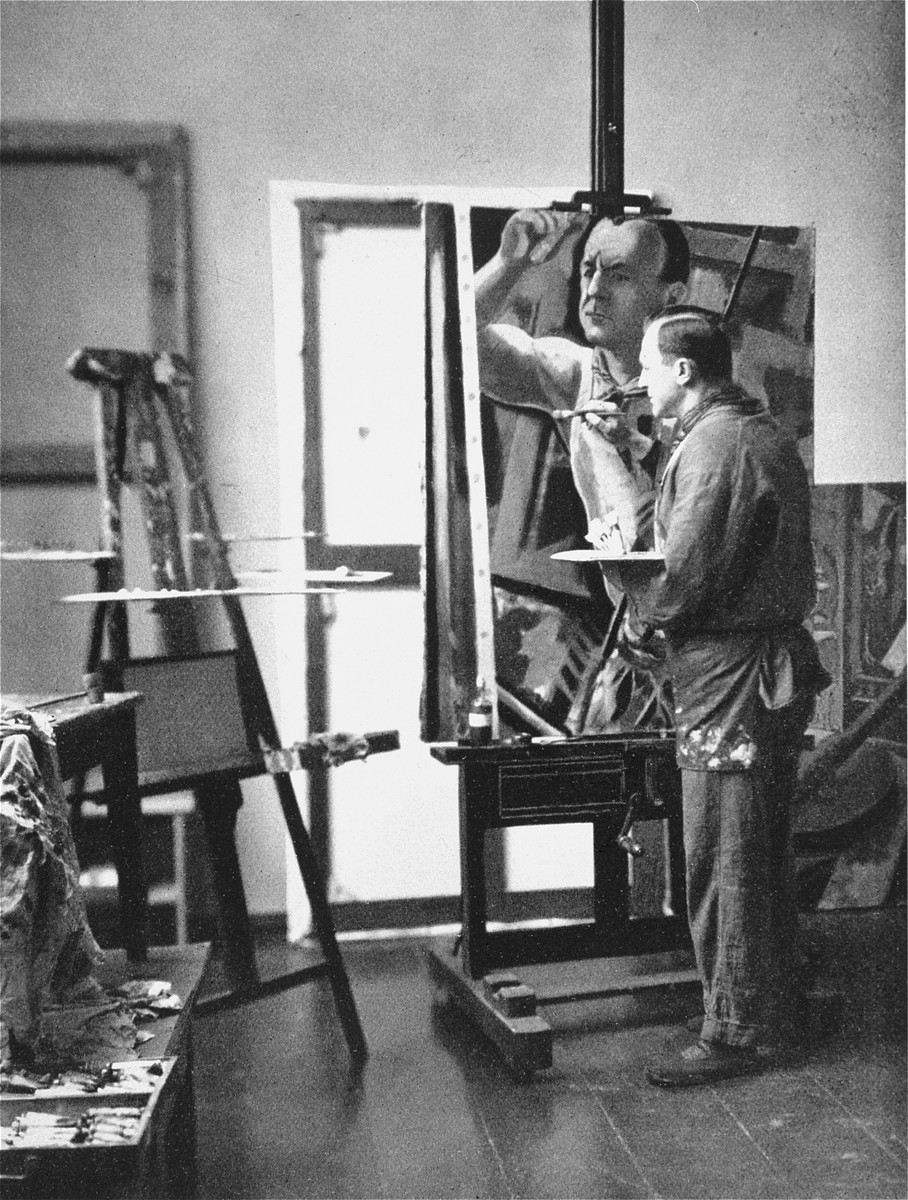
Georg Grosz
In 1933, Nazi students at more than 30 German universities pillaged libraries in search of books they considered to be "un-German." Among the literary and political writings they threw into the flames were the works of Georg Grosz.
Excerpt
Art is in danger. Today's artist, unless he wants to be useless, an antiquated misfit, can only choose between technology or class war propaganda. In both cases he must give up "pure art". Either he joins the ranks of architects, engineers, and ad men who develop industrial strength and who exploit the world, or he, as depictor and critic of the face of our time, as propagandist and defender of the revolutionary ideas and its followers, enters into the army of the oppressed who fight for their just share of the worth of the world and for a sensible social organization of life.
—Die Kunst ist in Gefahr (Art is in Danger), Georg Grosz with Wieland Herzfelde, 1925
Which of Georg Grosz's Works were Burned?
Die Gezeichneten (Marked man)
Das Gesicht der herrschenden Klasse (The Face of the Ruling Class)
Who was Georg Grosz?
German artist Georg Grosz (1893-1959), twice drafted into the German army during World War I, barely escaped being shot as a deserter. He translated his wartime experiences into artistic depictions of severely disabled soldiers, amputees, and men lingering near death. He also devoted his talent to satirical depictions of pompous army generals, war profiteers, a smug upper-middle class, and politicians. He was part of the Dada movement, which produced anti-bourgeois and anti-rational art in the wake of World War I.
Anticipating the Nazi rise to power, Grosz left Germany in 1932 and emigrated to the United States. His anti-Nazi drawing A Poet he was became a classic anti-fascist statement. In 1933, the Nazi regime jailed many of Grosz's colleagues who remained in Germany. Grosz's books, which contained many of his best-known plates, were thrown into the flames during the book burning of 1933.
Critical Thinking Questions
- If Jews were the principal target during the Holocaust, why were books written by non-Jewish authors burned?
- How did the German public react to the book burnings? What was reaction like outside of Germany?
- Why do oppressive regimes promote or support censorship and book burning? Why might this be a warning sign for mass atrocity?

